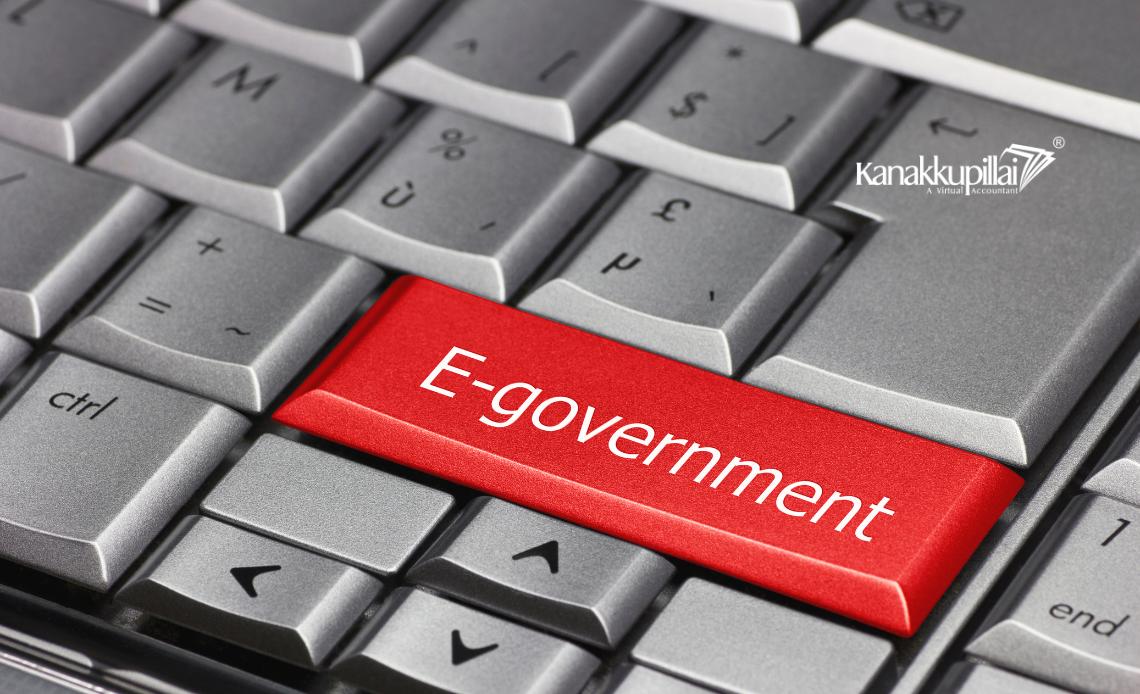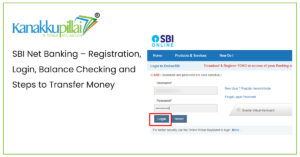![]()
E-Governance
Providing information and services online by local or national governments is known as E-Governance. The public, corporations, or other governmental organisations via the Internet or other digital channels. It is stated that eGovernment is the ongoing improvement of constituency involvement, governance, and service delivery through the use of technology, the Internet, and new media to change internal and external interactions. According to experts, e-government refers to the government’s use of information technology, especially the Internet, to facilitate government functions, interact with the public, and offer services. The World Wide Web can be used for various purposes, including information retrieval, filing, payment processing, etc.
Experts assert that eGovernment is an increasingly global marvel that represents a very beneficial undertaking and has drawn the interest of many governments and individuals worldwide. eGovernment has emerged as a potentially effective means of enhancing the services that governments offer to their constituents.
While definitions of e-government may differ greatly amongst sources, there is a common theme: e-government is the use of information technology, particularly the Internet, to enhance how government services are provided to businesses, citizens, and other government agencies. eGovernment allows people to communicate with and get services from their local, state, or federal governments around the clock, seven days a week. Using ICTs to assist government operations and deliver services is known as eGovernment.
What are the advantages of E-Governance?
The adoption of eGovernment has many benefits that have been covered in many academic publications. This article covers a few of these benefits: enhanced effectiveness, savings, and cost reduction; time savings; enhanced citizen and business communication facilitation; online service accessibility; transparency and reduced bureaucracy; and electronic involvement.
1. Improved efficiency, cost reduction and savings
Enhancing the effectiveness of the current paper-based system is one benefit of eGovernment. It lessens the amount of labour required to handle the majority of paper-based work.
Consequently, fewer workers would be needed to complete the process, saving operating costs. When eGovernment is properly implemented, it may result in better public service delivery that is appropriate, efficient, and relevant. Hence, this results in a decrease in the price of public services and the development of responsive governance procedures where citizens’ and businesses’ primary concerns are addressed. Stated differently, eGovernment reduces process costs, including time and money, to provide citizens with a wider range of public services efficiently and economically.
Better communication facilitation between businesses, citizens, governments
Facilitating improved communication between governments and businesses as well as between citizens is another benefit of E-Governance. One illustration of this is e-procurement, which makes it easier for firms to communicate with each other and with government agencies. It improves business and government relationships by fostering an open market and a better economy.
Several observers have also attributed the implementation of eGovernment services to a trend towards increased partnership among governments, users, and private sector organisations.
Government agencies are under pressure from the private sector to increase their efficiency, while government agencies are inspiring small businesses to follow suit by using e-commerce tactics. Creating an electronic government system facilitates the dissemination of knowledge and advances the belief that citizens are clients and that their contentment is crucial, not incidental.
2. Online access to services
Thanks to E-Governance, public sector organisations and citizens can more easily access government information programmes and services.
Without physically visiting government offices and agents, citizens can engage with the government whenever and from wherever they choose.
3. E-Participation
A better living is facilitated by E-Governance, which is defined by a representative and participative democracy, open, transparent, and cooperative decision-making, and strong ties and interactions between the public, private, and governmental sectors. The relationship between the government and the people may become more transparent, efficient, and accountable with the help of eGovernment.
People can communicate with public servants and politicians nationwide via the Internet and have their voices heard. They can access resources, including social networking sites, chat rooms, and blogging. eGovernment programme fosters community development by allowing businesses and residents to engage in forums, participate in the decision-making process, and actively contribute to various political and governmental topics.
What are the disadvantages of e-government?
Despite the many benefits of successfully implementing e-government, countless drawbacks exist. A few of these drawbacks are covered briefly in the following paper, including unequal public access to the internet, distrust and cybercrime, hyper-surveillance, a deceptive perception of openness and accountability, and expensive infrastructure.
1. Lack of equality in public access to the internet
Research has indicated that a decrease in the usability of government websites could occur due to elements such as computer accessibility, Internet technology availability, and service usability. Users’ computer proficiency and literacy are very related.
Some users require assistance because they are illiterate, meaning they cannot read or write. The elderly (senior citizens) are one example. Seniors typically lack formal education; thus, they would need to ask a customer service representative for help.
The belief expressed by various experts that e-exclusion, or the exclusion of individuals and enterprises who lack access to technology due to the digital divide, may be one of the drawbacks of implementing e-government.
2. Hyper surveillance
According to experts, emerging nations use eGovernment to try to improve public services, but they also use it to gain more control over their citizens.
The relationship between the government and its constituents is enhanced in both directions.
There will be a greater need for citizens to communicate with the government electronically as E-Governance grows in sophistication. As their government gets more and more information about them, this can cause a breach of privacy for citizens. There are legitimate worries about citizens and corporations providing the government with much information.
Although the government may appear to be a kind institution, there is a chance that this won’t always be the case or that other governments or groups may utilise this information against the people and companies in this nation.
3. False sense of transparency and accountability
Opponents of E-Governance contend that it is questionable because governments manage online government openness. It is possible to add or remove information from view. Few organisations even now keep an eye on these changes and hold people accountable for them. Experts emphasise the possibility that government organisations’ covert intentions could sway public opinion and be one of the drawbacks of E-Governance adoption.
4. Costly Infrastructure
According to experts, an Internet connection is a must for an effective e-government system, if not for most residents. Consequently, to access government websites, gear like routers, Internet-enabled devices, and a connecting infrastructure is required.
Public sector organisations also require sophisticated servers, security systems, and firewalls to fend off sophisticated cyberattacks to handle enormous volumes of data. Less developed economies cannot meet all of these needs due to their high investment cost.
One drawback of eGovernment deployment is the expense of technology. Development of the infrastructure, technology compatibility, ongoing availability and preservation, instruction and training in the use and operation of the technology, cost structures, and benchmarking are among the expenses.
Conclusion
The body of research has indicated that, in fact, e-Government may be useful in assisting governments in providing services online, thereby saving a great deal of money and resources. However, the literature has also emphasised several drawbacks or difficulties that arise when eGovernment is implemented. Consequently, all of the difficulties listed above that have been compiled from many literatures for this article should be considered when eGovernment is implemented. Government officials and private sector players should devise strategies to prevent eGovernment from being misused, as its primary goal is to serve beneficial purposes. Therefore, they should implement robust safeguards to safeguard e-Government.
e-Government enhances the effectiveness and delivery of public services. It enhanced relations between the government, business, and industry. Empowerment of citizens via digital platform information access. It will support transparent and efficient government management.
The usage of e-Government improves governance transparency. The majority of government data is accessible online. Information is available to citizens at all times. Because e-government allows citizens to track government actions online, corruption has decreased.
Kanakkupillai, with more than 10 years of market experience, is one of the major experts who has seen the evolution of the Government and its activities across the country. Hence, we have the expertise and knowledge to help you understand and get a new direction by understanding the eGovernment and how the same can help you utilize the benefits of the same in the betterment of your business.
Streamlining your operations is important in today’s business world. It is easy to not only go forward but also reach the customers right and win credibility amongst the rising market players. So, start your journey with us, Kanakkupillai, by contacting us at 7305 345 345!!





